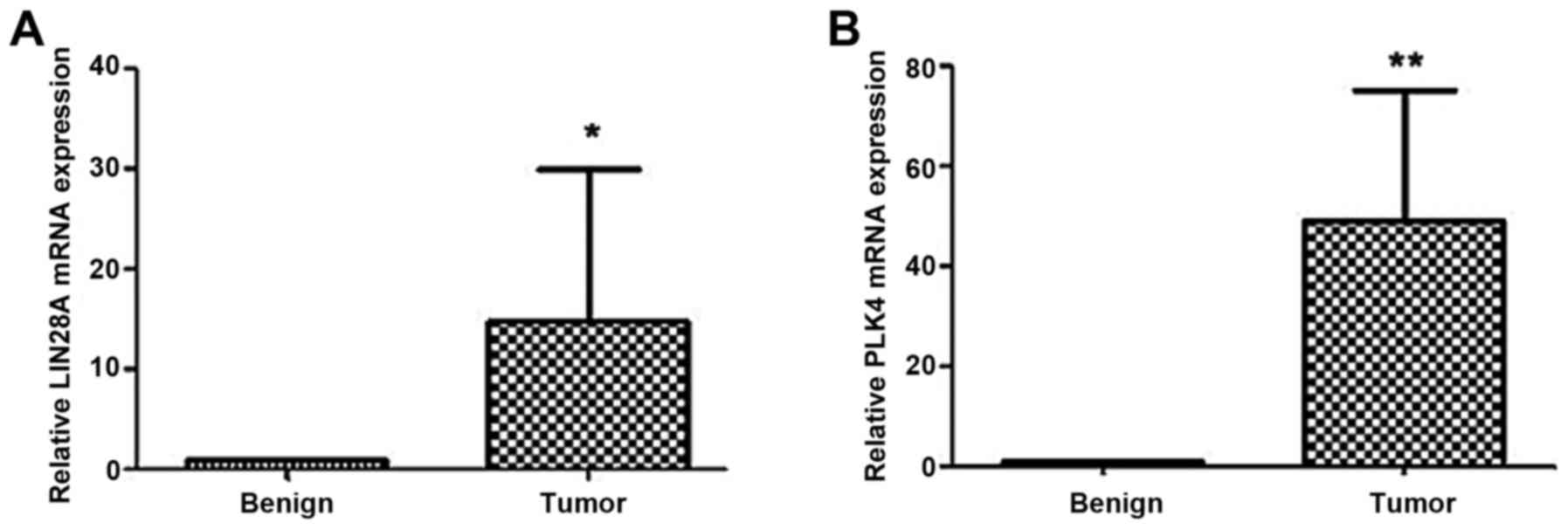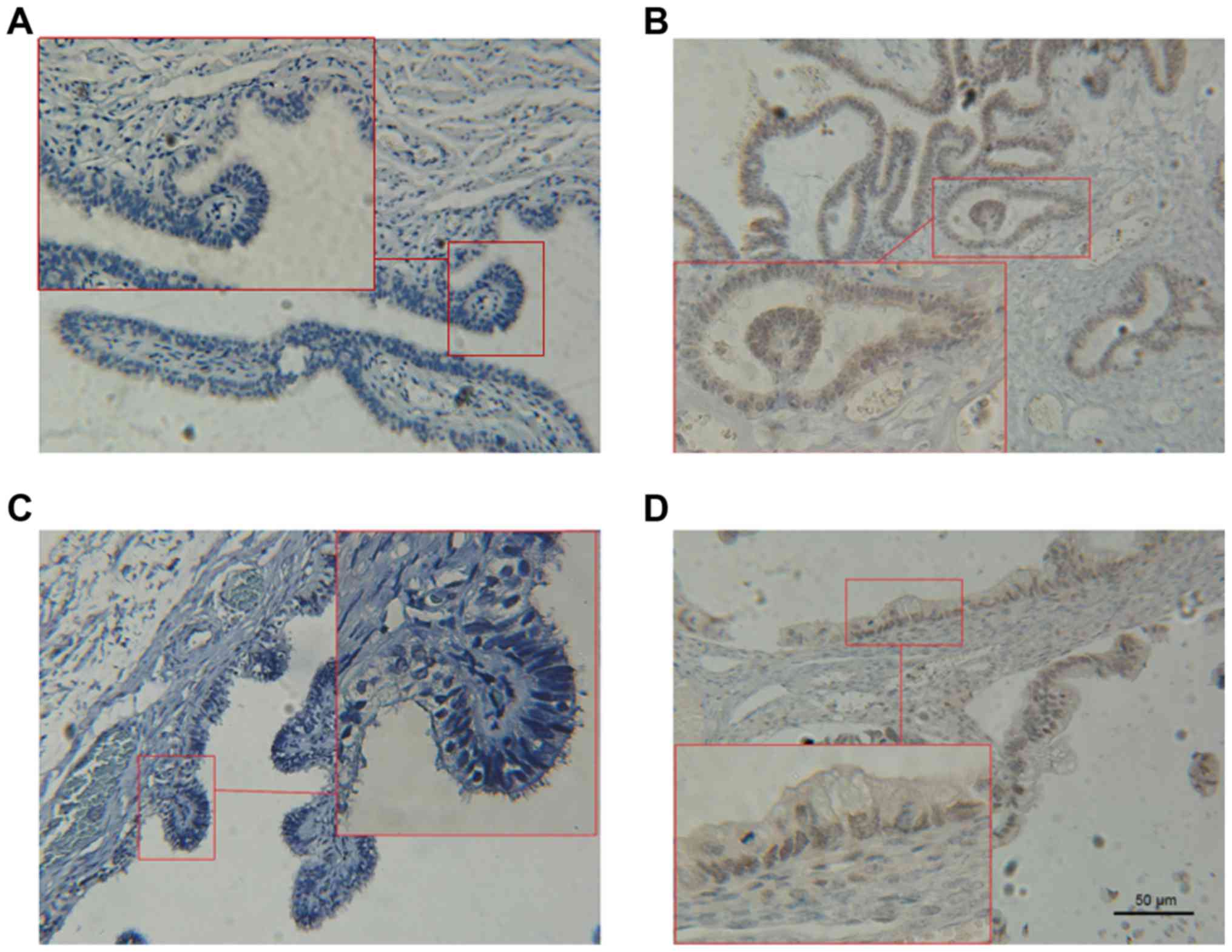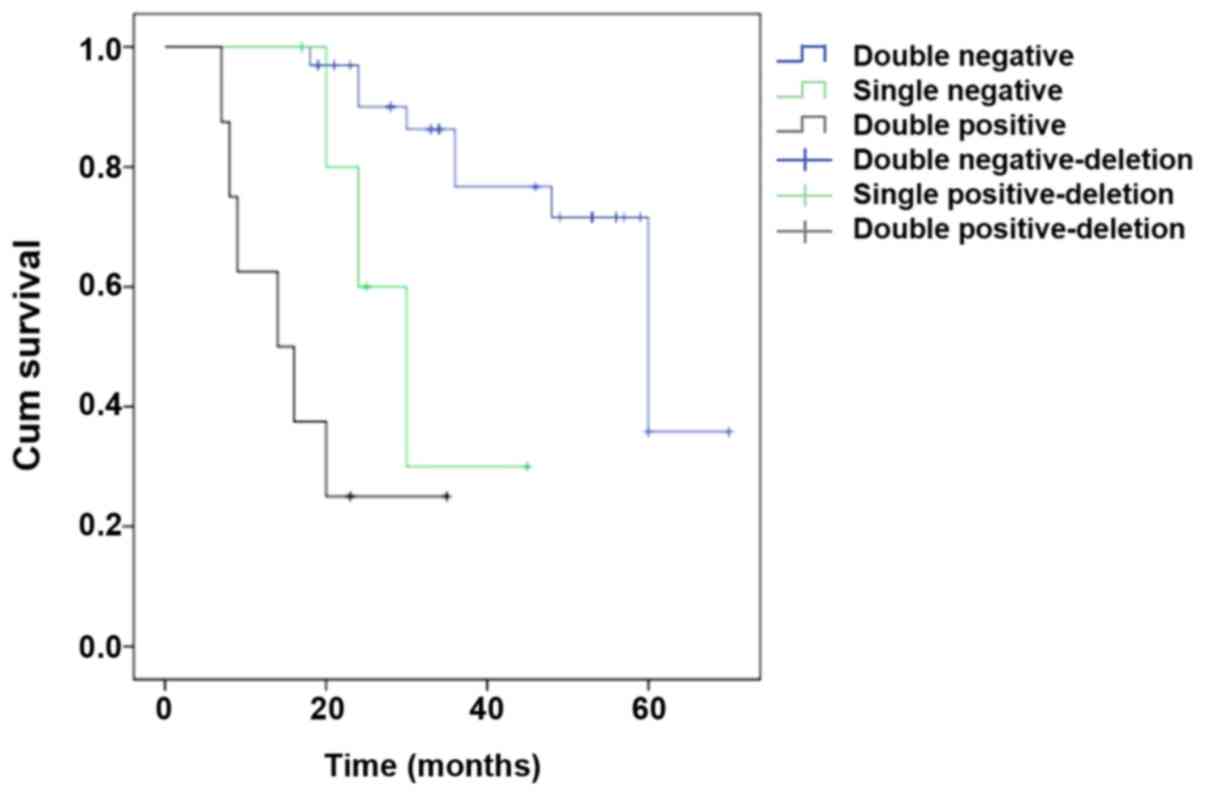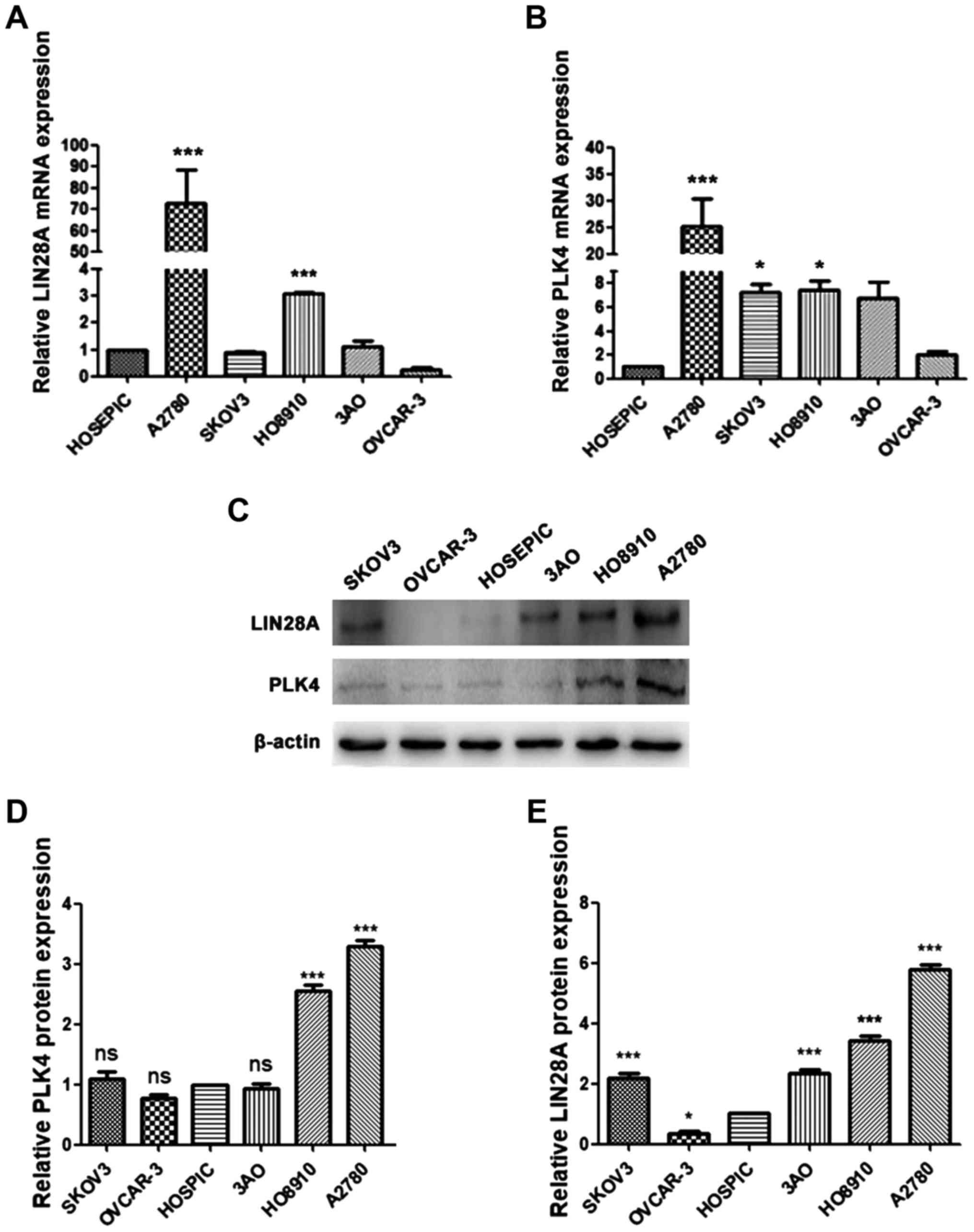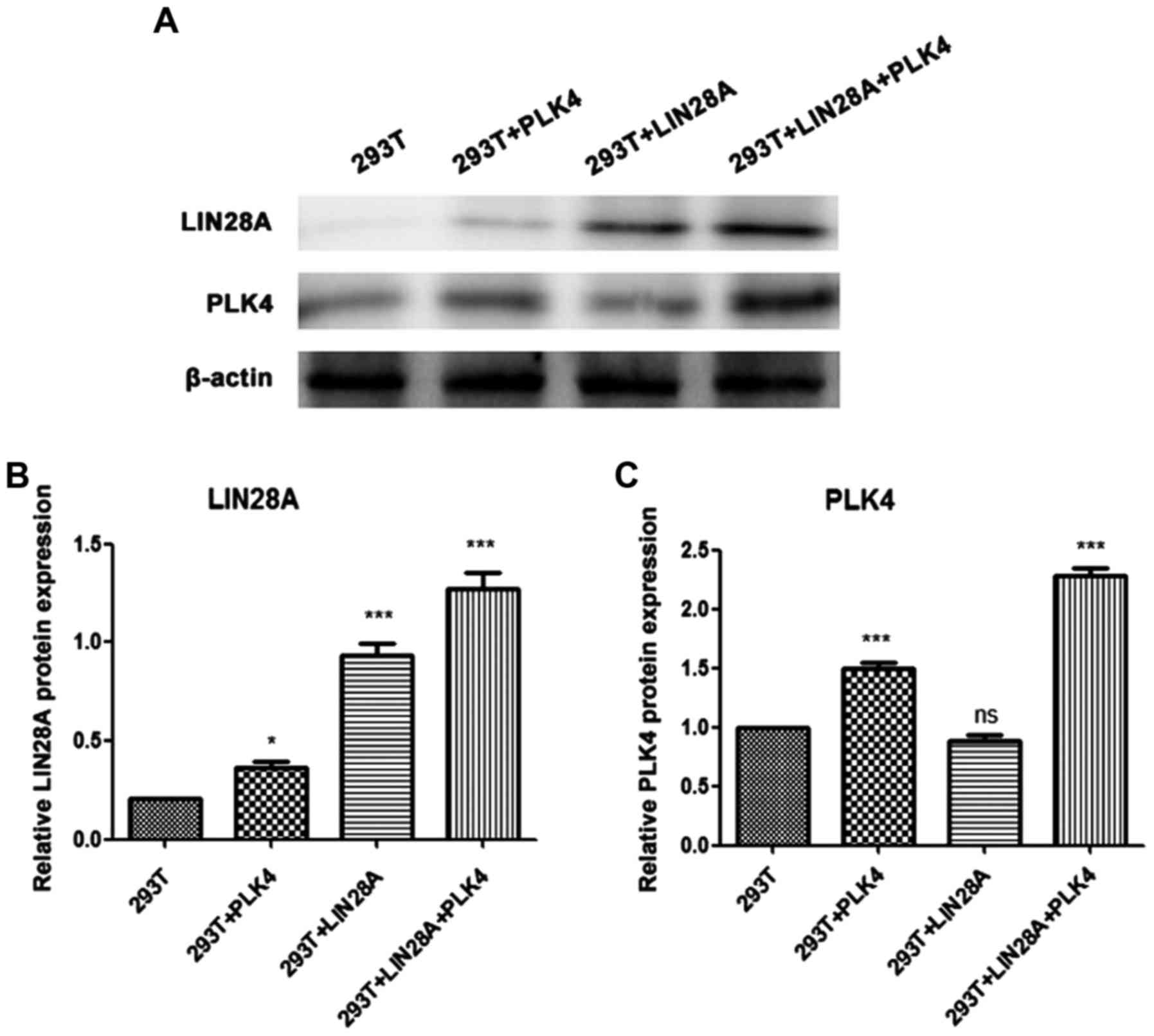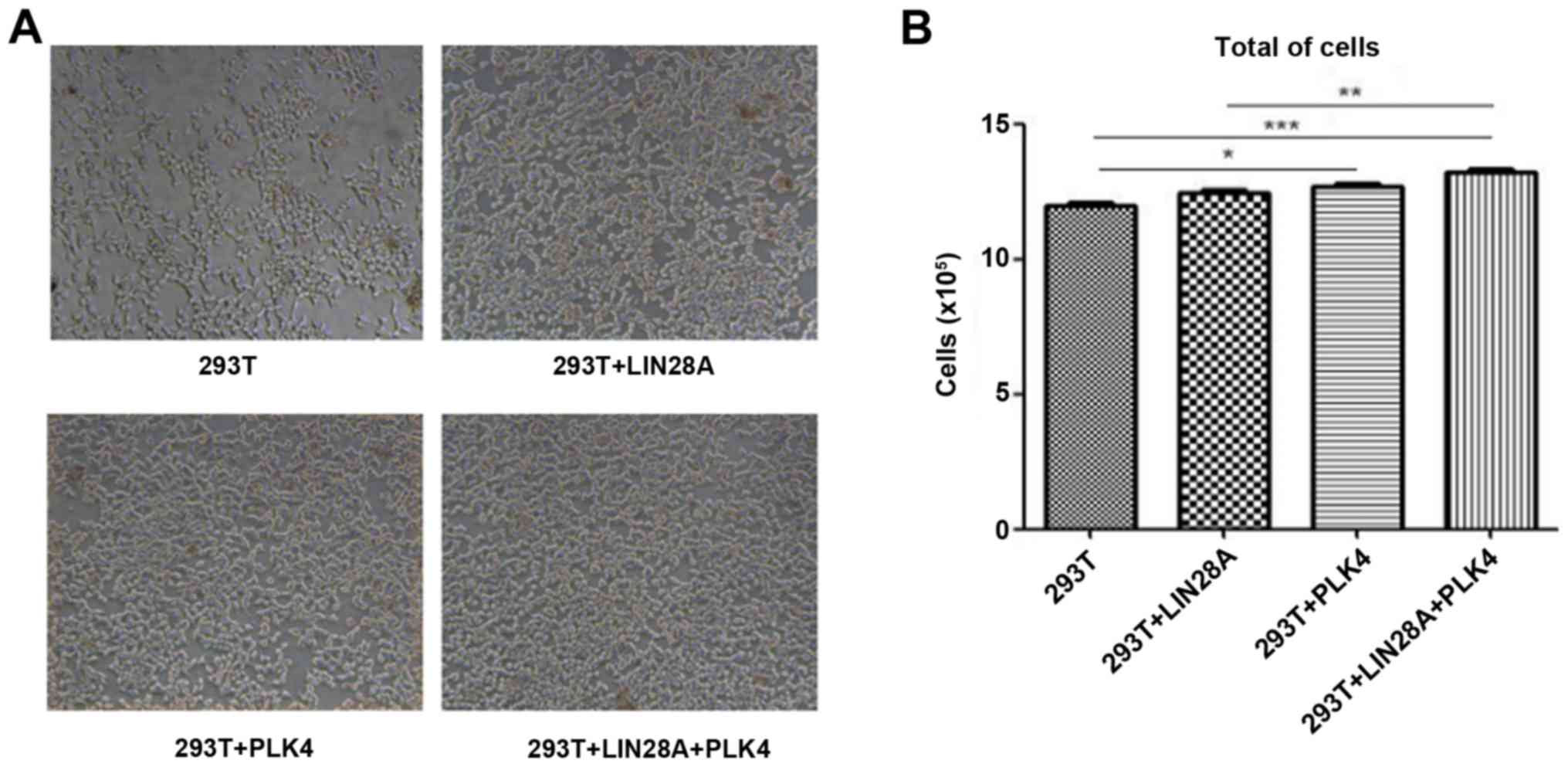|
1
|
Matz M, Coleman MP, Sant M, Chirlaque MD,
Visser O, Gore M and Allemani C: the CONCORD Working Group: The
histology of ovarian cancer: Worldwide distribution and
implications for international survival comparisons (CONCORD-2).
Gynecol Oncol. 144:405–413. 2017. View Article : Google Scholar : PubMed/NCBI
|
|
2
|
Kurman RJ and Shih Ie M: Molecular
pathogenesis and extraovarian origin of epithelial ovarian
cancer-shifting the paradigm. Hum Pathol. 42:918–931. 2011.
View Article : Google Scholar : PubMed/NCBI
|
|
3
|
The trouble with ovarian cancer. Lancet.
374:13022009. View Article : Google Scholar
|
|
4
|
Kurman RJ and Shih Ie M: The dualistic
model of ovarian carcinogenesis: Revisited, revised, and expanded.
Am J Pathol. 186:733–747. 2016. View Article : Google Scholar : PubMed/NCBI
|
|
5
|
Chien J, Kuang R, Landen C and Shridhar V:
Platinum-sensitive recurrence in ovarian cancer: The role of tumor
microenvironment. Front Oncol. 3:2512013. View Article : Google Scholar : PubMed/NCBI
|
|
6
|
Burgos-Ojeda D, Rueda BR and Buckanovich
RJ: Ovarian cancer stem cell markers: Prognostic and therapeutic
implications. Cancer Lett. 322:1–7. 2012. View Article : Google Scholar : PubMed/NCBI
|
|
7
|
Carmel-Gross I, Bollag N, Armon L and
Urbach A: LIN28: A stem cell factor with a key role in pediatric
tumor formation. Stem Cells Dev. 25:367–377. 2016. View Article : Google Scholar : PubMed/NCBI
|
|
8
|
Heo I, Joo C, Cho J, Ha M, Han J and Kim
VN: Lin28 mediates the terminal uridylation of let-7 precursor
MicroRNA. Mol Cell. 32:276–284. 2008. View Article : Google Scholar : PubMed/NCBI
|
|
9
|
Zhou J, Ng SB and Chng WJ: LIN28/LIN28B:
An emerging oncogenic driver in cancer stem cells. Int J Biochem
Cell Biol. 45:973–978. 2013. View Article : Google Scholar : PubMed/NCBI
|
|
10
|
Shyh-Chang N and Daley GQ: Lin28: Primal
regulator of growth and metabolism in stem cells. Cell Stem Cell.
12:395–406. 2013. View Article : Google Scholar : PubMed/NCBI
|
|
11
|
Feng C, Neumeister V, Ma W, Xu J, Lu L,
Bordeaux J, Maihle NJ, Rimm DL and Huang Y: Lin28 regulates HER2
and promotes malignancy through multiple mechanisms. Cell Cycle.
11:2486–2494. 2012. View
Article : Google Scholar : PubMed/NCBI
|
|
12
|
Ma W, Ma J, Xu J, Qiao C, Branscum A,
Cardenas A, Baron AT, Schwartz P, Maihle NJ and Huang Y: Lin28
regulates BMP4 and functions with Oct4 to affect ovarian tumor
microenvironment. Cell Cycle. 12:88–97. 2013. View Article : Google Scholar : PubMed/NCBI
|
|
13
|
Li N, Zhong X, Lin X, Guo J, Zou L, Tanyi
JL, Shao Z, Liang S, Wang LP, Hwang WT, et al: Lin-28 homologue A
(LIN28A) promotes cell cycle progression via regulation of
cyclin-dependent kinase 2 (CDK2), cyclin D1 (CCND1), and cell
division cycle 25 homolog A (CDC25A) expression in cancer. J Biol
Chem. 287:17386–17397. 2012. View Article : Google Scholar : PubMed/NCBI
|
|
14
|
de Cárcer G, Manning G and Malumbres M:
From Plk1 to Plk5: Functional evolution of polo-like kinases. Cell
Cycle. 10:2255–2262. 2011. View Article : Google Scholar : PubMed/NCBI
|
|
15
|
Takai N, Hamanaka R, Yoshimatsu J and
Miyakawa I: Polo-like kinases (Plks) and cancer. Oncogene.
24:287–291. 2005. View Article : Google Scholar : PubMed/NCBI
|
|
16
|
Weiss L and Efferth T: Polo-like kinase 1
as target for cancer therapy. Exp Hematol Oncol. 1:382012.
View Article : Google Scholar : PubMed/NCBI
|
|
17
|
Lohse I, Mason J, Cao PM, Pintilie M, Bray
M and Hedley DW: Activity of the novel polo-like kinase 4 inhibitor
CFI-400945 in pancreatic cancer patient-derived xenografts.
Oncotarget. 8:3064–3071. 2017. View Article : Google Scholar : PubMed/NCBI
|
|
18
|
Denu RA, Zasadil LM, Kanugh C, Laffin J,
Weaver BA and Burkard ME: Centrosome amplification induces high
grade features and is prognostic of worse outcomes in breast
cancer. BMC Cancer. 16:472016. View Article : Google Scholar : PubMed/NCBI
|
|
19
|
Li Z, Dai K, Wang C, Song Y, Gu F, Liu F
and Fu L: Expression of polo-like kinase 4(PLK4) in breast cancer
and its response to taxane-based neoadjuvant chemotherapy. J
Cancer. 7:1125–1132. 2016. View Article : Google Scholar : PubMed/NCBI
|
|
20
|
Bonni S, Ganuelas ML, Petrinac S and
Hudson JW: Human Plk4 phosphorylates Cdc25C. Cell Cycle. 7:545–547.
2008. View Article : Google Scholar : PubMed/NCBI
|
|
21
|
Mutch DG and Prat J: 2014 FIGO staging for
ovarian, fallopian, tube and peritoneal cancer. Gynecol Oncol.
133:401–404. 2014. View Article : Google Scholar : PubMed/NCBI
|
|
22
|
Livak KJ and Schmittgen TD: Analysis of
relative gene expression and the 2(-Delta Delta C(T)) method.
Methods. 25:402–408. 2001. View Article : Google Scholar : PubMed/NCBI
|
|
23
|
Helland Å, Anglesio MS, George J, Cowin
PA, Johnstone CN, House CM, Sheppard KE, Etemadmoghadam D, Melnyk
N, Rustgi AK, et al: Deregulation of MYCN, LIN28B and LET7 in a
molecular subtype of aggressive high-grade serous ovarian cancers.
PLoS One. 6:e180642011. View Article : Google Scholar : PubMed/NCBI
|
|
24
|
Wang T, Wang G, Hao D, Liu X, Wang D, Ning
N and Li X: Aberrant regulation of the LIN28A/LIN28B and let-7 loop
in human malignant tumors and its effects on the hallmarks of
cancer. Mol Cancer. 14:1252015. View Article : Google Scholar : PubMed/NCBI
|
|
25
|
Enriquez VA, Cleys ER, Da Silveira JC,
Spillman MA, Winger QA and Bouma GJ: High LIN28A expressing ovarian
cancer cells secrete exosomes that induce invasion and migration in
HEK293 cells. Biomed Res Int. 2015:7013902015. View Article : Google Scholar : PubMed/NCBI
|
|
26
|
Tu HC, Schwitalla S, Qian Z, LaPier GS,
Yermalovich A, Ku YC, Chen SC, Viswanathan SR, Zhu H, Nishihara R,
et al: LIN28 cooperates with WNT signaling to drive invasive
intestinal and colorectal adenocarcinoma in mice and humans. Genes
Dev. 29:1074–1086. 2015. View Article : Google Scholar : PubMed/NCBI
|
|
27
|
Spence T, Perotti C, Sin-Chan P, Picard D,
Wu W, Singh A, Anderson C, Blough MD, Cairncross JG, Lafay-Cousin
L, et al: A novel C19MC amplified cell line links Lin28/let-7 to
mTOR signaling in embryonal tumor with multilayered rosettes. Neuro
Oncol. 16:62–71. 2014. View Article : Google Scholar : PubMed/NCBI
|
|
28
|
Rubens JA, Wang SZ, Price A, Weingart MF,
Allen SJ, Orr BA, Eberhart CG and Raabe EH: The TORC1/2 inhibitor
TAK228 sensitizes atypical teratoid rhabdoid tumors to
cisplatin-induced cytotoxicity. Neuro Oncol. 19:1361–1371. 2017.
View Article : Google Scholar : PubMed/NCBI
|
|
29
|
Zeng Y, Yao B, Shin J, Lin L, Kim N, Song
Q, Liu S, Su Y, Guo JU, Huang L, et al: Lin28A binds active
promoters and recruits Tet1 to regulate gene expression. Mol Cell.
61:153–160. 2016. View Article : Google Scholar : PubMed/NCBI
|
|
30
|
Sillibourne JE and Bornens M: Polo-like
kinase 4: The odd one out of the family. Cell Div. 5:252010.
View Article : Google Scholar : PubMed/NCBI
|
|
31
|
Shinmura K, Kurabe N, Goto M, Yamada H,
Natsume H, Konno H and Sugimura H: PLK4 overexpression and its
effect on centrosome regulation and chromosome stability in human
gastric cancer. Mol Biol Rep. 41:6635–6644. 2014. View Article : Google Scholar : PubMed/NCBI
|
|
32
|
Ling H, Hanashiro K, Luong TH, Benavides L
and Fukasawa K: Functional relationship among PLK2, PLK4 and ROCK2
to induce centrosome amplification. Cell Cycle. 14:544–553. 2015.
View Article : Google Scholar : PubMed/NCBI
|
|
33
|
Rosario CO, Kazazian K, Zih FS,
Brashavitskaya O, Haffani Y, Xu RS, George A, Dennis JW and Swallow
CJ: A novel role for Plk4 in regulating cell spreading and
motility. Oncogene. 34:3441–3451. 2015. View Article : Google Scholar : PubMed/NCBI
|
|
34
|
Kazazian K, Go C, Wu H, Brashavitskaya O,
Xu R, Dennis JW, Gingras AC and Swallow CJ: Plk4 promotes cancer
invasion and metastasis through Arp2/3 complex regulation of the
actin cytoskeleton. Cancer Res. 77:434–447. 2017. View Article : Google Scholar : PubMed/NCBI
|
|
35
|
Mason JM, Lin DC, Wei X, Che Y, Yao Y,
Kiarash R, Cescon DW, Fletcher GC, Awrey DE, Bray MR, et al:
Functional characterization of CFI-400945, a Polo-like kinase 4
inhibitor, as a potential anticancer agent. Cancer Cell.
26:163–176. 2014. View Article : Google Scholar : PubMed/NCBI
|
|
36
|
Yu B, Yu Z, Qi PP, Yu DQ and Liu HM:
Discovery of orally active anticancer candidate CFI-400945 derived
from biologically promising spirooxindoles: Success and challenges.
Eur J Med Chem. 95:35–40. 2015. View Article : Google Scholar : PubMed/NCBI
|
|
37
|
Liu L, Zhang CZ, Cai M, Fu J, Chen GG and
Yun J: Downregulation of polo-like kinase 4 in hepatocellular
carcinoma associates with poor prognosis. PLoS One. 7:e412932012.
View Article : Google Scholar : PubMed/NCBI
|
|
38
|
Ko MA, Rosario CO, Hudson JW, Kulkarni S,
Pollett A, Dennis JW and Swallow CJ: Plk4 haploinsufficiency causes
mitotic infidelity and carcinogenesis. Nat Genet. 37:883–888. 2005.
View Article : Google Scholar : PubMed/NCBI
|
|
39
|
Ward A, Morettin A, Shum D and Hudson JW:
Aberrant methylation of Polo-like kinase CpG islands in Plk4
heterozygous mice. BMC Cancer. 11:712011. View Article : Google Scholar : PubMed/NCBI
|
|
40
|
Boutros R, Lobjois V and Ducommun B: CDC25
phosphatases in cancer cells: Key players? Good targets? Nat Rev
Cancer. 7:495–507. 2007. View Article : Google Scholar : PubMed/NCBI
|
|
41
|
Broggini M, Buraggi G, Brenna A, Riva L,
Codegoni AM, Torri V, Lissoni AA, Mangioni C and D'Incalci M: Cell
cycle-related phosphatases CDC25A and B expression correlates with
survival in ovarian cancer patients. Anticancer Res. 20:4835–4840.
2000.PubMed/NCBI
|
|
42
|
Yang J, Bennett BD, Luo S, Inoue K, Grimm
SA, Schroth GP, Bushel PR, Kinyamu HK and Archer TK: LIN28A
modulates splicing and gene expression programs in breast cancer
cells. Mol Cell Biol. 35:3225–3243. 2015.PubMed/NCBI
|
|
43
|
Ueland FR: A perspective on ovarian cancer
biomarkers: Past, present and yet-to-come. Diagnostics (Basel).
7:E142017. View Article : Google Scholar : PubMed/NCBI
|
|
44
|
Wei SU, Li H and Zhang B: The diagnostic
value of serum HE4 and CA-125 and ROMA index in ovarian cancer.
Biomed Rep. 5:41–44. 2016. View Article : Google Scholar : PubMed/NCBI
|
|
45
|
Sölétormos G, Duffy MJ, Othman Abu Hassan
S, Verheijen RH, Tholander B, Bast RC Jr, Gaarenstroom KN, Sturgeon
CM, Bonfrer JM, Petersen PH, et al: Clinical use of cancer
biomarkers in epithelial ovarian cancer: Updated guidelines from
the european group on tumor markers. Int J Gynecol Cancer.
26:43–51. 2016. View Article : Google Scholar : PubMed/NCBI
|
|
46
|
Arts-De Jong M, De Bock GH, Van Asperen
CJ, Mourits MJ, de Hullu JA and Kets CM: Germline BRCA1/2 mutation
testing is indicated in every patient with epithelial ovarian
cancer: A systematic review. Eur J Cancer. 61:137–145. 2016.
View Article : Google Scholar : PubMed/NCBI
|
|
47
|
Pujade-Lauraine E, Selle F, Weber B,
Ray-Coquard IL, Vergote I, Sufliarsky J, Del Campo JM, Lortholary
A, Lesoin A, Follana P, et al: Volasertib versus chemotherapy in
platinum-resistant or -refractory ovarian cancer: A randomized
phase II groupe des investigateurs nationaux pour l'etude des
cancers de l'ovaire study. J Clin Oncol. 34:706–713. 2016.
View Article : Google Scholar : PubMed/NCBI
|
|
48
|
Peng S, Maihle NJ and Huang Y:
Pluripotency factors Lin28 and Oct4 identify a sub-population of
stem cell-like cells in ovarian cancer. Oncogene. 29:2153–2159.
2010. View Article : Google Scholar : PubMed/NCBI
|















